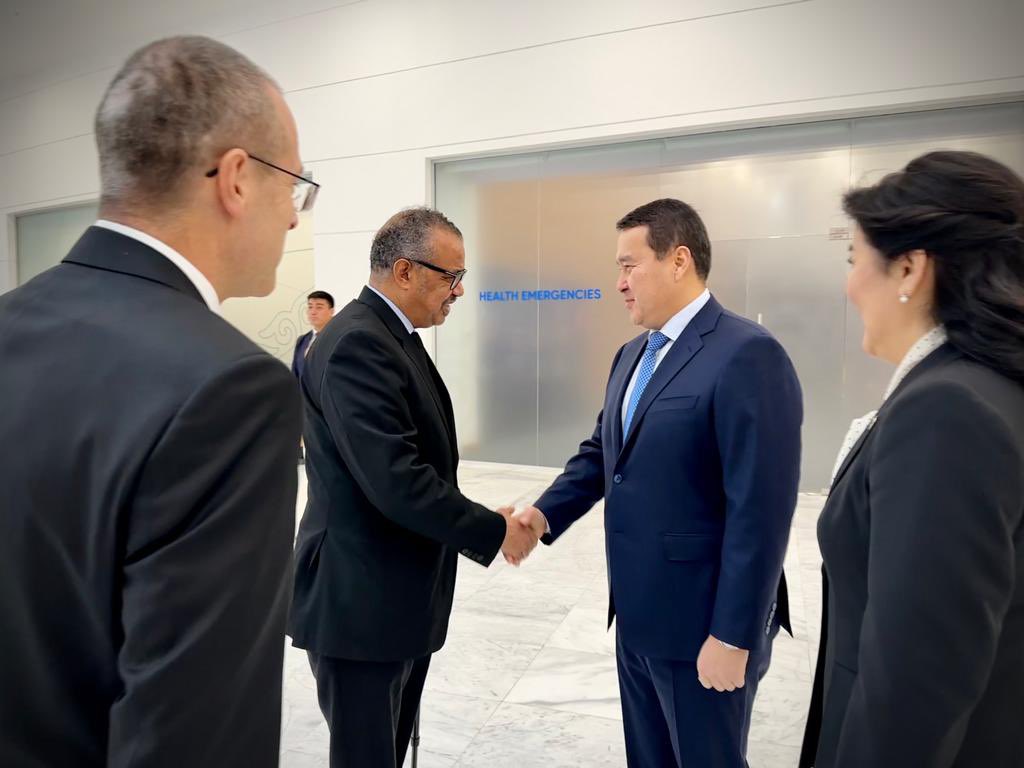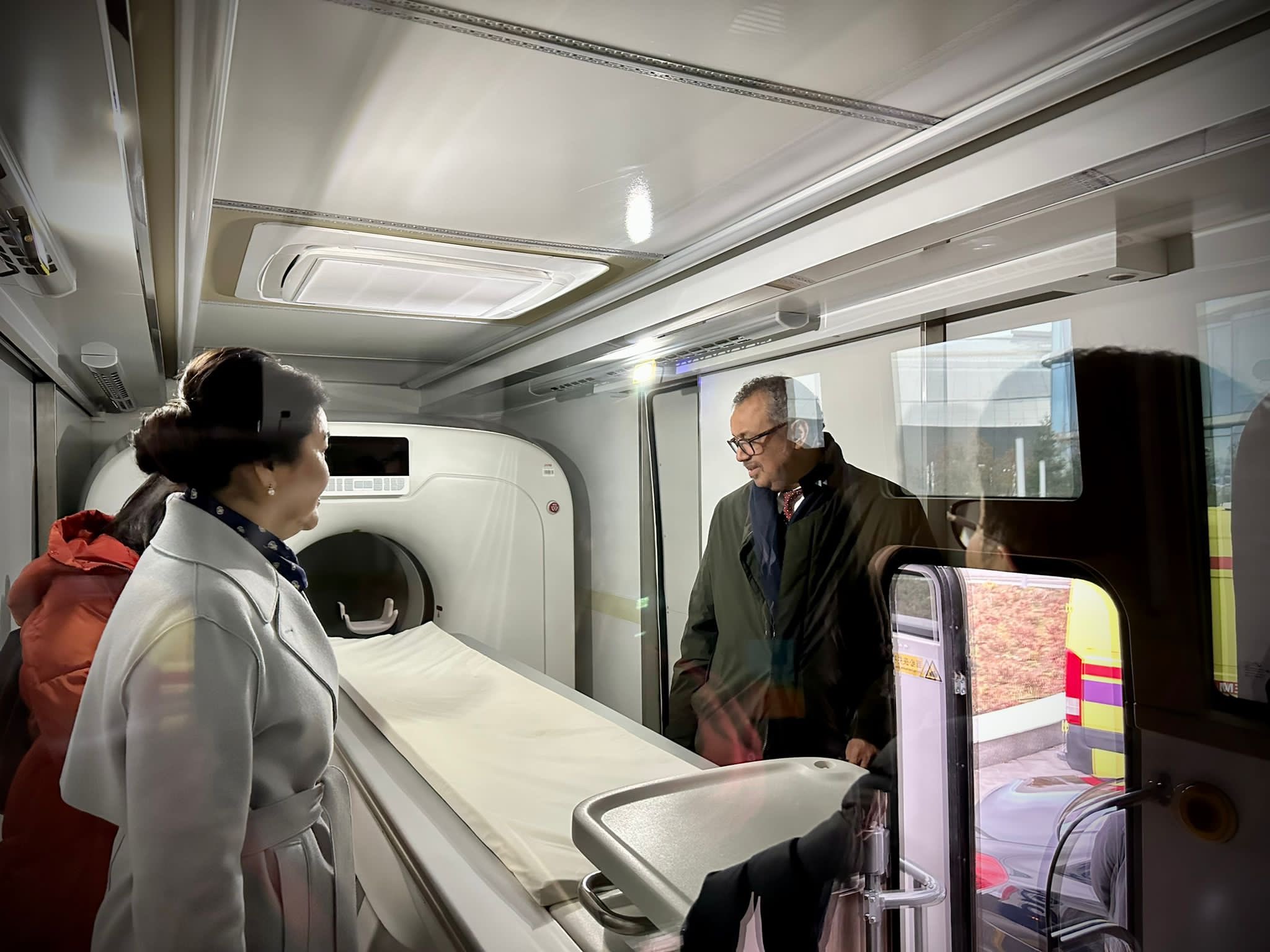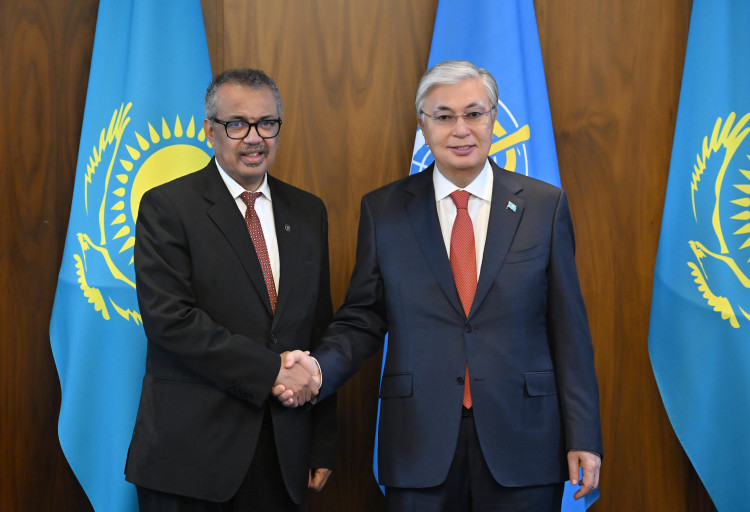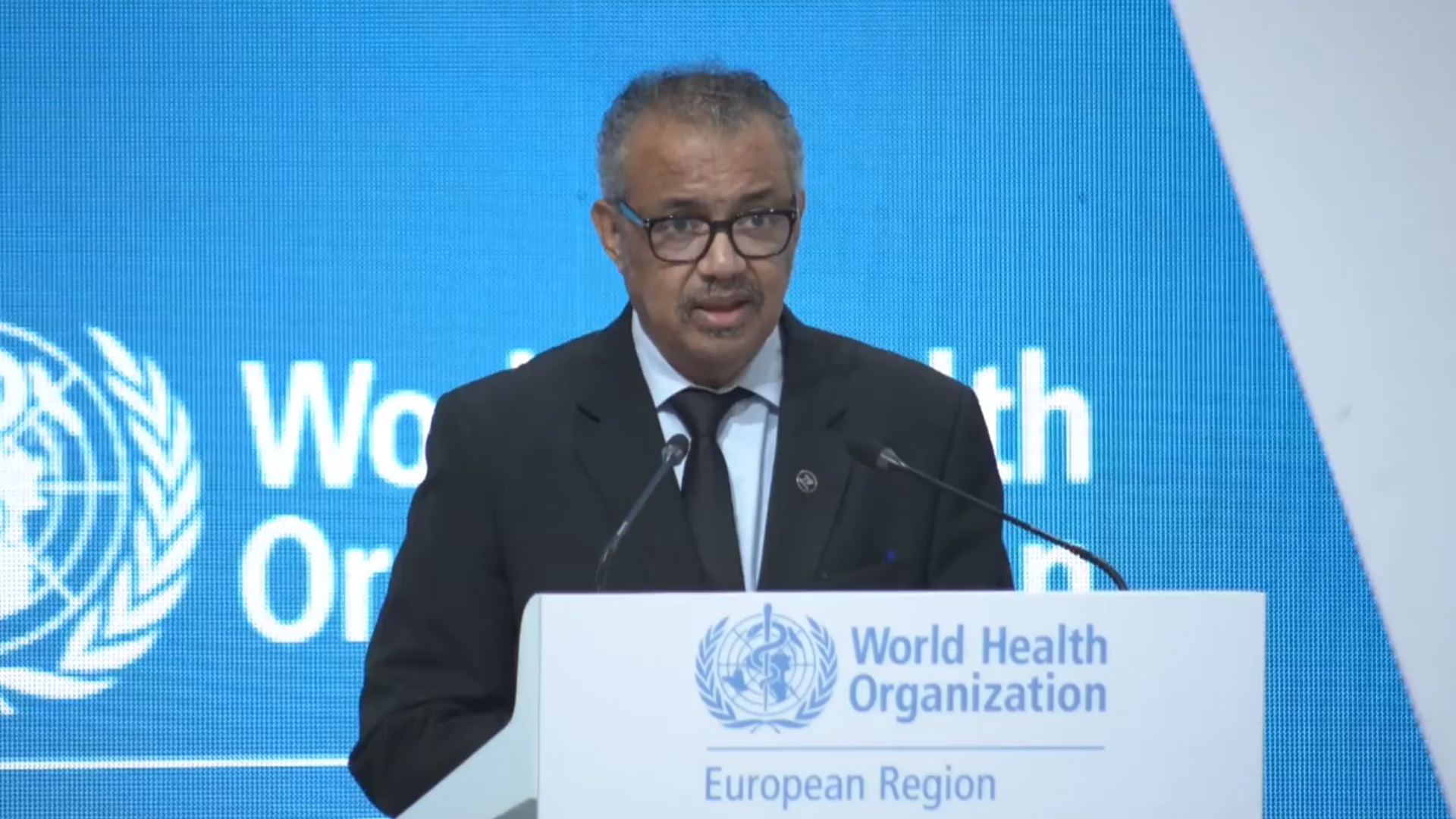ASTANA – 2023 has witnessed a multitude of health crises from extreme climate conditions to wars, which have rendered healthcare inaccessible for a significant portion of the population, said World Health Organization (WHO) Director-General Dr Tedros Adhanom Ghebreyesus in an interview with The Astana Times.

Tedros Adhanom Ghebreyesus. Photo credit: UN Photo/Elma Okic
The world does not have a moment to lose. “2023 was a year of many health challenges in the region, from extreme heat to floods to the war in Ukraine to the refugee crisis in Armenia to the persistent and ongoing health worker shortages and the rising cost of living, making healthcare unaffordable for many – we don’t have a moment to lose,” said Ghebreyesus, who has been leading WHO since May 2017.
He hails from Ethiopia and has an extensive background in public health, having served as Ethiopia’s Minister of Health and Minister of Foreign Affairs.
Addressing the international conference in Astana on Oct. 23 dedicated to the 45th anniversary of the Alma-Ata declaration on primary healthcare and the fifth anniversary of the Astana declaration on primary healthcare, Ghebreyesus noted that it is not political declarations, statements, or reports that make the difference, but action by each individual.
In a world where crises do not stop, the poor, the most vulnerable, and the most marginalized people pay the highest cost.
Ghebreyesus recalled the 73rd session of the WHO Regional Committee for Europe in Astana on Oct. 24-26 which concluded with some major decisions for the global healthcare system.

Ghebreyesus and Prime Minister Smailov meet on the sidelines of the 73rd session on Oct, 24. Photo credit: Ghebreyesus’s official X account
“This year’s regional committee had a full agenda during which we took stock of the state of health in the European Region – a diverse and large group of 53 countries stretching from the Atlantic to the Pacific Oceans, covering Europe and Central Asia, including Kazakhstan,” said the WHO chief.
Among the key topics on the agenda were a new action framework on the health and care workforce for the next five years, preparing health systems for future emergencies, and ways to reverse the tide of antimicrobial resistance.
“I hope that participants – in particular the many national delegates – left with a renewed sense of urgency to place primary healthcare at the center of their health systems rather than the periphery,” he said.
While the efforts may spark optimism, Ghebreyesus said the world has still a long way to go to ensure health systems meet the health needs of every single person in society, without financial hardship.
“The pandemic showed us that countries with strong primary health care were better able to withstand the shock, keep the death rate lower, and crucially, the trust in the health system built over the years ensured that people complied with protection measures like mask-wearing and taking up the vaccine when it was available,” he explained.

Kazakh Minister of Health Azhar Giniyat and Ghebreyesus visited the mobile clinic in Astana. Photo credit: Ghebreyesus’s official X account
According to the WHO’s latest estimates, the estimated scale of human deaths from COVID-19 was 6.9 million people as of Nov. 2, with more than $3.5 trillion in economic loss.
At the conference, Ghebreyesus urged the participating countries to double their investments in primary healthcare. He added it is the “surest way of leaving no one behind.”
Some of Kazakhstan’s achievements in healthcare can serve as an example for other countries. WHO commended the nation’s progress in increasing life expectancy at birth by more than 10 years over the last two decades, which Ghebreyesus said is one of the highest such increases globally.
“Kazakhstan has achieved global goals with regard to reducing maternal mortality, children under-five mortality, and neonatal mortality rates. Measures taken by Kazakhstan in combating tobacco and nicotine use are an example for the WHO European region. Firm steps were taken to promote a tobacco and nicotine-free environment and implement health taxes to protect public health,” he said.
He touted Kazakhstan’s efforts in terms of primary healthcare and universal health coverage. Universal health coverage entails that every individual and community have access to a comprehensive range of health services, spanning from health promotion, prevention, treatment, and rehabilitation, to palliative care throughout their lives.

Ghebreyesus and President Kassym-Jomart Tokayev met on Oct. 23. Photo credit: Akorda
“Kazakhstan is a champion of primary healthcare, not only at the national level but also at regional and global levels. The country is hosting a geographically dispersed office for primary healthcare. The Astana Declaration on primary healthcare, endorsed in October 2018, aims to refocus efforts on primary healthcare globally to ensure everyone, everywhere can enjoy the highest possible attainable standard of health,” he said.
He mentioned statistics indicating a substantial rise in the universal health coverage index, a worldwide measure that tracks advancements in achieving Sustainable Development Goal 3, which is good health and well-being. This index climbed from 38.7% in 2000 to 75.9% in 2019 in Kazakhstan, which is close to the WHO European Region average of 77.1%.
“In terms of its health workforce, Kazakhstan has also walked the talk by investing in primary healthcare, universal health coverage and its various pillars, including strengthening its health workforce. I was impressed with how Kazakhstan scaled up the skills of its health workers, for example, to communicate with communities on the benefits of COVID-19 vaccination,” said Ghebreyesus.
The WHO chief commended the partnership between the organization and Kazakhstan, which stems from the opening of the WHO Country Office in Kazakhstan in 1994. Since then, WHO has been providing technical expertise and professional support to the Kazakh Ministry of Health, mobilizing medical supplies and medical equipment if required.
“WHO has been supporting numerous technical areas dealing with the quality, accessibility, and safety of healthcare services, including through capacity building and implementing evidence-based guidelines for laboratory systems, infection prevention and control, immunization, case management, mother and child care,” Ghebreyesus explained.

Tedros Adhanom Ghebreyesus called upon WHO member states to intensify their efforts and make more and smarter investments toward reorienting to a primary healthcare approach. Photo credit: the WHO
WHO also assists Kazakhstan in the Mental Health Gap Action Program aimed at expanding services for mental, neurological, and substance use disorders.
“The WHO European Center for Primary Health Care is located in Almaty and helps countries in the European Region to reform systems to deliver people-centered, integrated health services,” he added, noting that the center is hosted by the government of Kazakhstan.
He emphasized that WHO and Kazakhstan also worked closely to apply for a $19 million grant from the World Bank’s Pandemic Fund to boost epidemiological surveillance, border control, lab safety, early detection and response, and staff training in Kazakhstan.
“I have also been impressed by Kazakhstan’s support for the negotiations of a Pandemic Accord, which would be a generational agreement to protect the world from the threat of future pandemics through closer collaboration, starting from the highest political levels, between all countries,” said Ghebreyesus.
While in Astana, he met with President Kassym-Jomart Tokayev. Addressing the 73rd session of the WHO Regional Committee for Europe, Ghebreyesus acknowledged Kazakhstan has both a professional and a personal significance for him.
“A professional significance, of course, as the birthplace of primary healthcare. But a personal significance because my daughter-in-law is Kazakh, and two of my grandkids are part Kazakh,” said the WHO chief.

